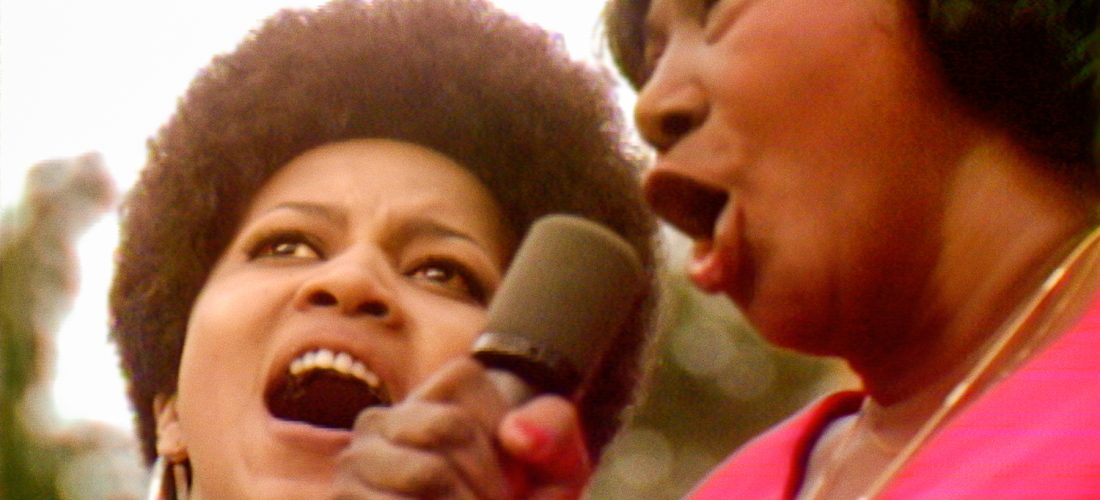The ‘Summer of Soul’ Soundtrack Is Just as Revelatory as the Movie
A few tracks into the soundtrack of Questlove’s music-fest documentary, an emcee introduces the next performer, David Ruffin. A year after being bounced out of the Temptations, the notoriously troubled Ruffin already sounds nostalgic: “I’d like to go back to the olden days,” he says, with a glimmer of humor, as his backup band starts into the Temps’ “My Girl.”
Only five years had passed since that hit had conquered the world, but as Ruffin himself may have gleaned, Black music had grown exponentially in that short time. And both the Summer of Soul movie and its accompanying album (which revives the tradition of live festival albums of that era, from Woodstock to Wattstax) are reminders of the ways in which soul and R&B had expanded and run wild in the period leading up to the Harlem Cultural Festival in the summer of 1969.
Those changes are doubly clear on the album, on which we’re able to experience complete performances of songs only heard in snippets in the movie. Heard in full, both B.B. King’s “Why I Sing the Blues” and the Chambers Brothers’ “Uptown” are even friskier and more propulsive than on studio versions; the coming funk revolution can’t be denied. The impact of the civil rights moment on music also emerges in Nina Simone’s “Backlash Blues” and “Are You Ready,” and the Staple Singers’ “It’s Been a Change.” Whether the performances are stark and embittered (Simone’s) or somber and haunted (the Staples’), the tracks communicate years of struggle and pain — a far cry from the sense of hope that ran through earlier calls to arms, like Sam Cooke’s “A Change Is Gonna Come.”
Sly and the Family Stones’ two tracks — a bustling “Sing a Simple Song” and the multivoiced glory of “Everyday People” — zero in on the way Black music was absorbing funk and rock as the decade came to a close. Neither cut is as volcanic as the band’s multisong medley at Woodstock, but the paucity of officially released Family Stone live recordings makes them valuable documents. It’s impossible to hear the roof-wrecking horns and Sly rave-ups on the former without thinking anew of his impact on Prince.
The soundtrack (and the movie) also make the point that the Harlem Cultural Festival wasn’t strictly about soul. Two of the pleasures of the album are Mongo Santamaria’s Latin-jazz strut “Watermelon Man” — originally a hit for its writer, Herbie Hancock — and jazz flutist Herbie Mann’s “Hold On, I’m Comin’.” Thank God for the latter, since finally we get to hear guitarist Sonny Sharrock’s sputtery free-jazz solo halfway through that Sam and Dave cover. And in a sign of how timeless these songs can be given the state of the country in 2022, percussionist and bandleader Ray Barretto’s “Together” is a plea for those of all races and beliefs to come together — “before it’s too goddamn late!” as Barretto asserts, prophetically.
As for David Ruffin, his solo “My Girl” doesn’t come close to replicating the heavenly glide of the Temptations’ version, especially when a horn section replaces his ex-bandmates’ harmonies. Ruffin’s voice is already roughed up, hinting at the coming train wreck of his life and career. But he still whoops it up and, at one point, holds a falsetto note for 15 astonishing seconds. Even as soul was moving forward that summer, its luminous past could still take center stage from time to time.
